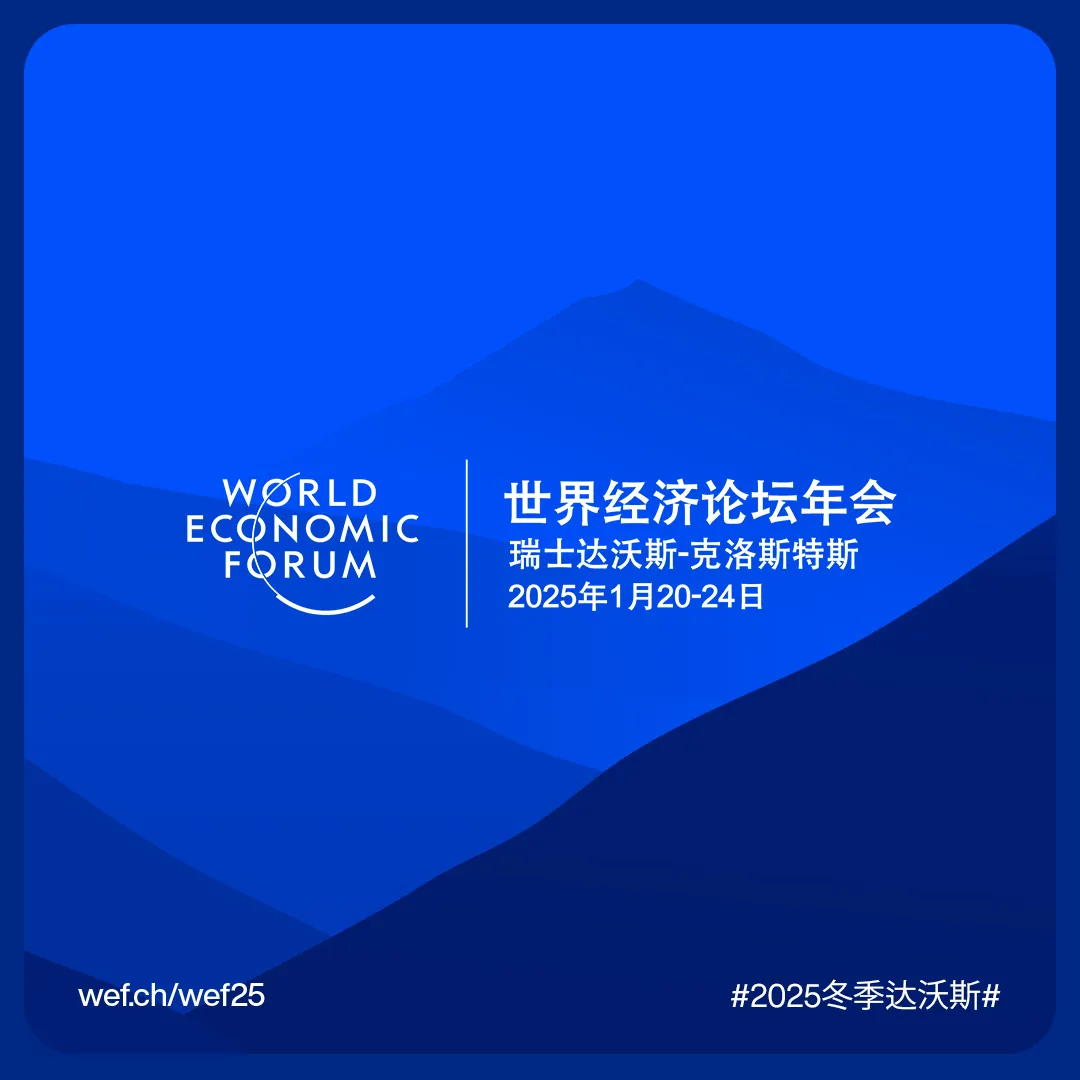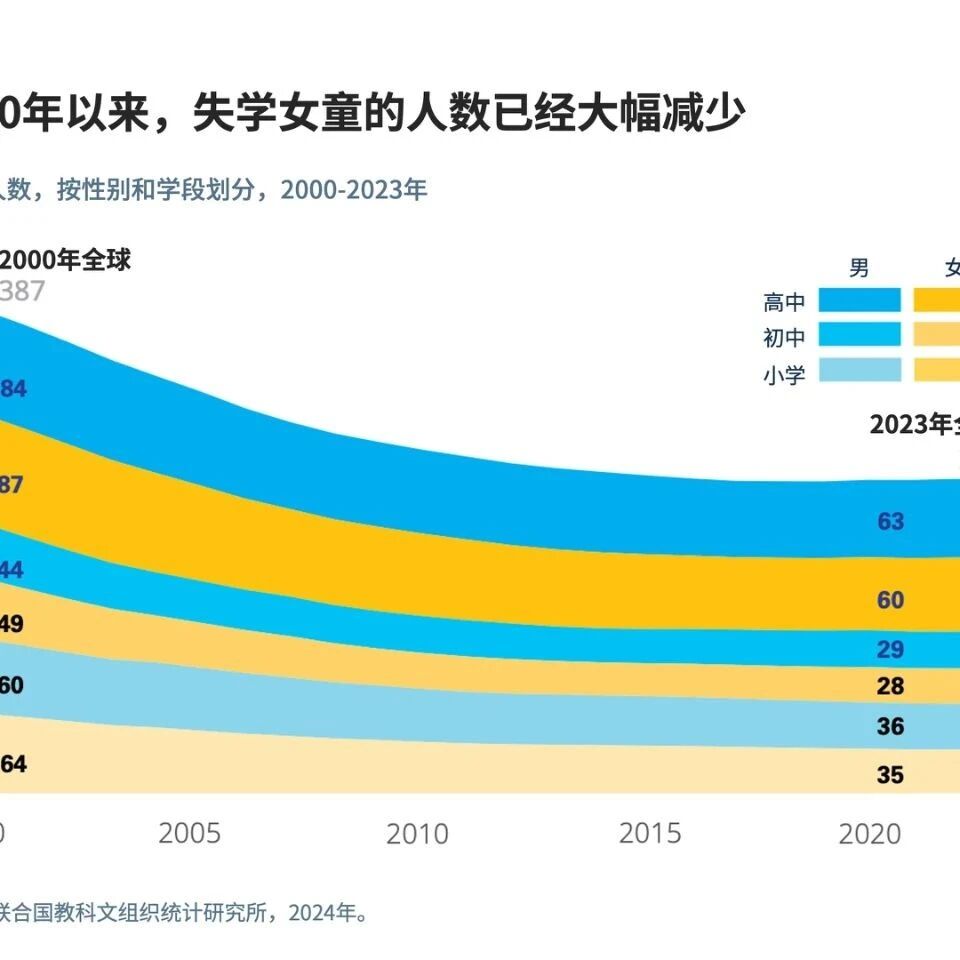56% of chief economists expect the global economic outlook to weaken in 2025, while only 17% of respondents believe the economic prospects will improve.
Concerns about rising debt and inflation levels have dampened optimism regarding the short-term growth outlook for the U.S.
Europe is on track for its weakest growth outlook in nearly three consecutive years, with 74% of respondents expecting the European economy to remain sluggish—or even very weak—in 2025.
48% of chief economists believe that, despite growing concerns about a retaliatory protectionist cycle, global trade volumes will still increase.
To read the full report, please click "Read More." Stay updated on the 2025 World Economic Forum Annual Meeting by visiting the official WEF website. And don’t forget to join the conversation—use the hashtag #2025WinterDavos# to follow and share all the latest updates from the event on social media!
The World Economic Forum's latest "Chief Economists Outlook" report reveals that the global economy will face significant challenges in 2025, with 56% of chief economists surveyed expecting the economic outlook to weaken. Only 17% of respondents believe the situation will improve, though they also highlight growing uncertainties in key regions and emphasize the need for cautious policy measures on a global scale.
The U.S. economy appears set for a short-term boost—44% of chief economists predict strong growth in 2025, a significant increase from the 15% who held this view last August—but the outlook remains less optimistic for other major economies over the next year. Europe is expected to remain the weakest-performing region for the third consecutive year, with nearly three-quarters (74%) of respondents anticipating either weak or very weak growth there. Meanwhile, China’s economic momentum is projected to slow down amid tepid consumer demand and declining productivity, further highlighting the uneven and uncertain nature of the global recovery.
"The newly released 'Chief Economist Outlook' reveals that the global economy is under immense pressure," said Aengus Collins, Managing Director of Economic Growth and Transformation at the World Economic Forum. "Growth prospects are at their lowest point in decades, and domestic and international political dynamics indicate that economic policies have become increasingly contentious. Against this backdrop, fostering a spirit of collaboration will require even greater commitment and creativity than ever before."
U.S. Economy: Short-Term Momentum, Long-Term Caution Required
The newly released report underscores the growing significance of the upcoming U.S. presidential election. According to 61% of chief economists, the election’s impact on the global economy won’t be a short-term disruption—it signals instead a long-term shift. Key areas such as trade, immigration, deregulation, fiscal policy, and industrial strategy are expected to undergo major transformations. Meanwhile, chief economists remain cautiously optimistic about U.S. growth prospects for 2025, reflecting their expectations for recent stimulus measures and rising wages. However, these economists remain keenly aware of the risks ahead, with nearly all respondents anticipating higher levels of public debt (97%) and inflation (94%).
Global integration faces greater pressure.
In addition to the slowing global growth outlook, the "Chief Economist Outlook" report also highlights that the interconnectedness of the global economy is coming under increasing pressure. A vast majority of respondents—94%—anticipate further divergence in merchandise trade over the next three years, while 59% believe service trade will follow a similar trend. More than three-quarters of respondents expect greater barriers to labor mobility, and nearly two-thirds note that technology transfer and data flows will face even more restrictions. Notably, however, the financial sector stands out as a significant exception: fewer than half of respondents (48%) foresee intensified fragmentation, likely reflecting the critical role cross-border capital flows play in today’s economy. Yet, domestic and international political dynamics, along with supply chain realignments and growing security concerns, are becoming increasingly prominent. These shifts could drive up business operating costs and consumer expenses over the next three years. To navigate this increasingly fragmented global economy, companies are likely to adopt strategies such as restructuring their supply chains (91%), adopting regionalized operations (90%), and focusing on core markets (79%).
Trade Outlook: Navigating Rising Pressures
Nearly half (48%) of chief economists expect global trade volumes to rise in 2025, highlighting the resilience of global commerce. However, most respondents believe that trade tensions—both between major powers and on a broader, global scale—will intensify. Protectionism is emerging as the primary driver behind the ongoing transformation of the global trade landscape, alongside other critical factors such as geopolitical conflicts, sanctions, and growing concerns over national security. About 82% of respondents anticipate that trade regionalization will deepen further over the next three years, eventually expanding beyond goods trade to increasingly influence the services sector as well.
About the "Chief Economist Outlook" Report
The "Chief Economist Outlook" report is compiled by the World Economic Forum’s Center for the New Economy and Society, drawing heavily on the latest policy developments as well as insights gathered from consultations and opinion surveys conducted with leading chief economists across both the public and private sectors. The report aims to highlight emerging features of the current economic landscape, pinpoint key next steps for policymakers and business leaders, and help navigate the multifaceted challenges confronting the global economy. The most recent edition of the report, based on its opinion survey, was completed at the end of November 2024.
"The Chief Economist Outlook" supports the World Economic Forum’s “Future of Growth” initiative, which will spearhead a two-year effort aimed at sparking discussions and driving action to explore new pathways for economic growth—and helping policymakers strike the right balance among growth, innovation, inclusivity, resilience, and sustainability goals. To learn more about the "Future of Growth" initiative, please visit
https://initiatives.weforum.org/future-of-growth-initiative/home
Regarding the 2025 World Economic Forum Annual Meeting
The 2025 World Economic Forum Annual Meeting will take place from January 20 to 24 in Davos-Klosters, Switzerland, bringing together global leaders to discuss the theme "Collaboration in the Age of Intelligence." The event will focus on fostering new partnerships and inspiring fresh insights, aiming to shape a more sustainable and inclusive future amid rapid technological advancements. Key areas of emphasis include reimagining growth, driving industry transformation in the intelligent era, investing in people, safeguarding our planet, and rebuilding trust. For more details about the annual meeting, visit the World Economic Forum website.
Feel free to share this in your Moments; for reprints, please leave a comment at the end of the post or message us via our official.
The World Economic Forum is an independent and neutral platform dedicated to bringing together diverse perspectives to discuss critical global, regional, and industry-specific issues.
Follow us on Weibo, WeChat Video Accounts, Douyin, and Xiaohongshu!
"World Economic Forum"



